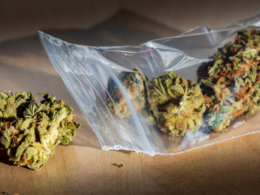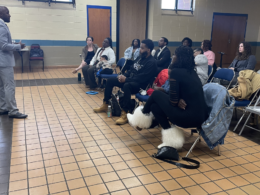State Question 820, which would allow recreational marijuana use in Oklahoma, will be on the ballot when voters head to the polls on March 7.
Since the question would not be applied to Native American governments, there is no wording in it addressing its applicability or enforcement on Native American territories or reservations.
In order to enforce drug laws, the Cherokee Nation and other Oklahoma tribal nations follow federal rules. When voters in Oklahoma legalized medicinal cannabis in 2018 by passing SQ 788, numerous Indian tribes in the state, notably the Cherokee Nation, loosened enforcement in various areas, especially in regard to usage.
The CN’s Human Resources department revised its stance on marijuana use in the new year of 2020. The existing policy states that persons with valid medical marijuana cards can join or remain with the CN even if they test positive for cannabis during routine drug testing.
It is still against the law to consume or possess cannabis on tribally owned land, as per federal law.
Cherokee Nation Attorney General Sara Hill said that in 2020, “Chief Hoskin proposed and the Council of the Cherokee Nation approved a reform to the tribe’s criminal code as it relates to marijuana,” which included moving marijuana from Schedule I to Schedule III and reducing penalties for possession and distribution.
According to Oklahoma’s medical marijuana law, possession and distribution of Schedule III drugs are permitted. These drugs have a recognized medicinal application in treatment in the United States. Anyone with legitimate Medical Marijuana permits in the Cherokee Nation is now shielded from criminal prosecution thanks to the amendments.
The Cherokee Nation will continue to stand by its citizens who use medical marijuana in accordance with the law, even as it continues to crack down on the unlawful cultivation and trafficking of the drug.
Even if voters pass SQ 820, it won’t be without limitations:
- Use may be limited by landlords and employers.
- A public or vehicular display or use of this product is prohibited.
- Any exports outside of the state would be unlawful.
- The use of cannabis would not affect a person’s eligibility for government aid, could not prevent them from purchasing firearms, and would not be considered in child custody cases.
- Penalties for minors who use drugs include monetary fines, mandatory drug education classes of four hours duration, or both.
- Police wouldn’t be able to pull you over just because your car smells like a pot.
- All but one of Oklahoma’s district attorneys, law enforcement officers, and Governor Kevin Stitt have spoken out publicly against the passage of SQ 820.
If approved, SQ 820 would make marijuana legal for adults over the age of 21. It would legalize the purchase of marijuana products from authorized vendors for recreational use. It would legalize the possession of up to 8 ounces of marijuana as well as 6 mature plants and 6 seedlings.
There will be a system of licensing for recreational marijuana shops as well as commercial growers, processors, and transporters, and the state will be required to draught regulations for the manufacturing and labeling of marijuana products within 90 days of the bill’s passage.
The state excise tax would be 15%, and the proceeds would be split between drug treatment programs, courts, municipalities, and other government services.



